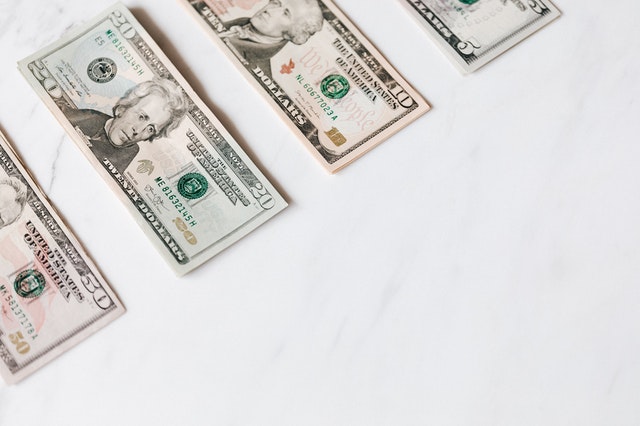
Unfortunately, accidents happen in life. Unexpected events occur and unexpected costs arise. That’s why everyone should have an emergency fund.
The first step when creating an emergency fund is to create a budget. It is important to make savings part of your personal financial planning.
Saving is often difficult, especially when everything is so costly. Expenses have a habit of escalating, while our salary income often does not. Putting money into a savings account every month will help build the habit of managing your paycheck.
Reasons for Saving Towards an Emergency Fund
1. Building an emergency fund is important
Saving small amounts today could make all the difference tomorrow. We all face unexpected expenses from time to time. Putting away small amounts every month will alleviate a burden off your shoulders when you’re trying to deal with a crisis. It’s always better to be prepared.
2. Saving for those large, expensive items
Are you planning an exciting holiday or dreaming of owning a home? Saving for a house deposit, an experience, or even education will become easier if you have a nest egg. You will have options.
Taking out loans is an expensive exercise. By avoiding loans and using savings and credit cards, you will actually spend less money in the long term.
3. Saving will help you reach your goal faster
Is your dream a college education for your kids? Perhaps you are looking forward to a comfortable retirement! Planning and saving to meet these goals is realistic. It’s never too late or too early to save to reach your savings goals.
Borrowing money is expensive. Saving could help you achieve your goals without using your credit card. And it could get you there faster.
Save Money for Tomorrow’s Emergencies
Do you know how much you spend daily and monthly? To get a good idea of how much you spend on small things like magazines and coffee, write everything down. It will surprise you how the small expenses add up.
Use your credit card only if you can pay the full amount when you get your bill. Separate spending money from savings if you keep cash at home.
1. Why Does an Emergency Fund Matter? Why Should I Start One?
Keeping your emergency fund in a separate savings account is a good idea. A separate account will discourage you from putting your money towards unrelated goals.
This money will be especially useful when you or a loved one are faced with a true emergency.
2. What Kind of Emergency Fund Goal Should You Save For?
It’s important to define what kinds of expenses your emergency fund will cover. Any emergency medical costs, especially those not covered by your insurance, are standard practice.
There are also costs like unforeseen repairs to your motor vehicle. Or any unexpected household repairs. Or the replacement of electrical appliances.
And then there’s saving for the event of unemployment or retrenchment. Whether or not you’re employed, you’ll still have monthly living expenses, and your emergency fund could prove vital in keeping you afloat.
3. What Is the Point of Saving For An Emergency Fund?
An emergency fund is especially useful when you face a financial emergency, not just a physical one. This money will help you avoid the high interest rates that would be present if you had to take out loans or use your credit card instead.
And if you have debt, an emergency fund could prove invaluable, especially if it helps you avoid borrowing even more.
4. How Much Do I Need to Save For Emergencies?
Working towards around six months of expenses for your emergency fund is a good rule of thumb. The right amount to save is 100% dependent on your personal financial situation. Six months’ worth is a starting point, from which you can tailor your specific savings needs.
Layoffs are a common occurrence. This is especially the case during the COVID-19 pandemic. You could use your emergency fund to pay for a couple of months of expenses while looking for a new job. Your emergency fund could also top up unemployment benefits.
Start small, even with just $500 dollars, and build this up over time.
5. Keep Your Money Secured
There is always a chance that you could face unplanned expenses. The secret is to have easy access to money, as well as putting it somewhere to accrue the highest possible interest rates.
Placing your money in a cookie jar is not safe, nor will it earn you any interest. Tying your money into a long-term investment won’t give you quick access.
Therefore, a separate bank account is a must. A direct deposit from your salary is a good idea. This way, you will not be tempted to use your savings, and you will reach your financial goals faster. All without the chance of your money literally burning up in a house fire.
Consider a high-yield saving account. A high-yield interest emergency savings account is insured federally, up to $250,000 for each individual depositor. This makes it a safe savings option and allows you to make your money work for you. Plus, you will have instant access to your cash in an emergency.
Saddock Wealth Is Here To Help!
At Saddock Wealth, we show you the bigger picture and how to save for that rainy day. Start saving today for a bright future, and prepare yourself for any financial curveballs that may be thrown your way.
Our team of financial experts is here and ready to help you grow your wealth. You can rely on our professional team to help you fulfill your financial dreams, one dollar at a time.
Schedule a meeting today to discuss building your personal finance safety net.
Sources:
www.nerdwallet.com/emergency-fund
www.bankrate.com/starting-an-emergency-fund
www.consumer.gov/making-budget
